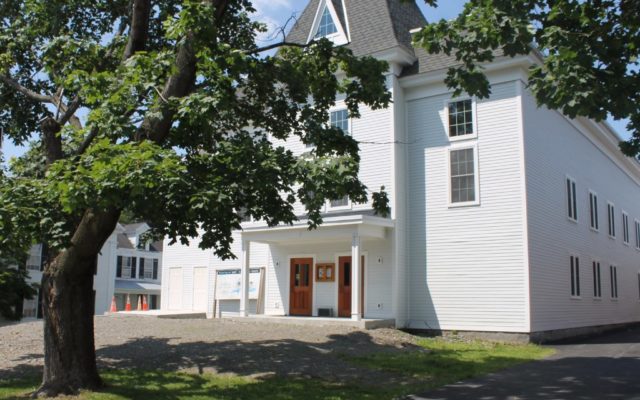
Intergenerational trauma topic for Feb. 14 program at The Commons
DOVER-FOXCROFT — Intergenerational trauma is passed from generation to generation through the process of epigenetics. The experiences that we have in life are recorded in our bodies and become a part of our genetic material that can be transmitted to our offspring and future generations.
Elizabeth Rosner, the daughter of two Holocaust survivors, will present via video “Understanding and Transforming the Legacy of Intergenerational Trauma” on Thursday, Feb. 14 at 1 p.m. at The Commons at Central Hall. Her program is part of the Healing Trauma Summit from Sounds True and is presented by NAMI Piscataquis County. As a best-selling writer and lecturer, Rosner created her first work of well-researched non-fiction “Survivor Café: The Legacy of Trauma and Labyrinth of Memory,” called the best book of 2017 by the San Francisco Chronicle.
Even though we may be living a pleasant and healthy life, we can, without really knowing or understanding why, have feelings of anxiety, depression, PTSD, or suicidal thoughts. These can be as a result of epigenetics, our DNA, transformed by horrific trauma. Family members may never speak of the violence, murders, or suicides that occurred in previous generations so as to protect their children. However, children may feel the effects of these traumas without knowing.
Rosner not only speaks of her personal experience as a child of two Holocaust survivors, but she delves into other historical atrocities considering the WWII nuclear bombings of Japan, the genocide in Cambodia, and the ongoing trauma that continues to this day for the descendants of slavery in America. She explains that even though a person lives in the North and never lived in the South, they carry a collective trauma of the shame of slavery. We all carry the shameful trauma of the genocide of Native Americans within us. Witnessed trauma can epigenetically become a part of us, as it did for the soldiers who liberated concentration camps throughout Europe.
Personally, I spoke with a German friend, a child during WWII in Germany. He revealed, as did his daughter, the great guilt that he and most Germans feel about the genocide of the Jews. Neither he, his parents, nor his children participated in the atrocity, but never-the-less, they are impacted by that trauma to this day. How are we as citizens of the United States impacted by the trauma of separating children from refugee parents and incarcerating them, sometimes in places without enough care to keep them alive? How do we evoke compassion in our country’s leaders to prevent horrifying events? We are faced with the moral trauma of not doing something to help to stop the traumatic cruelty. Every time we witness injustices occurring without doing something to help, we become morally traumatized.
Rosner proposes that historical and personal stories be kept alive and curated to preserve the history. She underscores the importance of memorials and museums for education and reconciliation. Memorialization can bring about collaborative healing. In her presentation, she suggests vocabulary to use when speaking about genocide and atrocity.
If you would like to attend this free, highly-informative, beautifully presented, and uplifting program, please call 924-7903 or write nami.piscataquis@gmail.com to register.